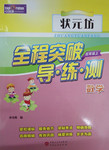题目内容
granted, we often don't clearly understand how we make friends. While we get on well with a number
of people, __1__
Moreover, a great many relationships come under the general term "friendship". In all cases, two
people like one another and enjoy being together, but beyond that, the degree of closeness between
them and the reasons for their interest in each other change greatly.
At the beginning, much depends on how people meet, and on good first impressions. As we get to
know people, __2__Although these factors are not of the greatest importance, it is more difficult to
have a good relationship with people when there is a big difference in age and background.
Then, __3__Friends will stand closer together and will spend more time looking at each other than
ordinary friends. Smiles and soft voices also express friendliness, and it is because they may give the
wrong signals that shy people often have difficulty making friends. A friendly look with a wrong facial
expression can turn into an unfriendly stare, and nervousness may be wrongly understood as
unfriendliness.
Some relationships are a result of argument and discussion, but it is usual for close friends to have
the same ideas and beliefs, the same opinion and interests. The more closely involved people become,
the more they depend on each other. And __4__ Equally, friends have to learn to make allowances for
each other, to put up with annoying habits, and to accept differences in opinion.
In contrast with marriage, __5__But the support and understanding that results from shared
experiences and affections does seem to create a close and lasting relationship.
A. we are usually friends with only a few.
B. many factors can affect friendship and relationship.
C. people want to do friends favors and hate to let them down.
D. argument and discussion can improve personal relationships.
E. we consider things like age, race, looks, economic and social status, etc.
F. we pay attention to actual behavior, facial expression, and the way a person speaks.
G. there are no friendship ceremonies to strengthen the relationship between two people.

 状元坊全程突破导练测系列答案
状元坊全程突破导练测系列答案
| |||||||||||||||||||||||||||||||||||||||||||||||||||||||||||